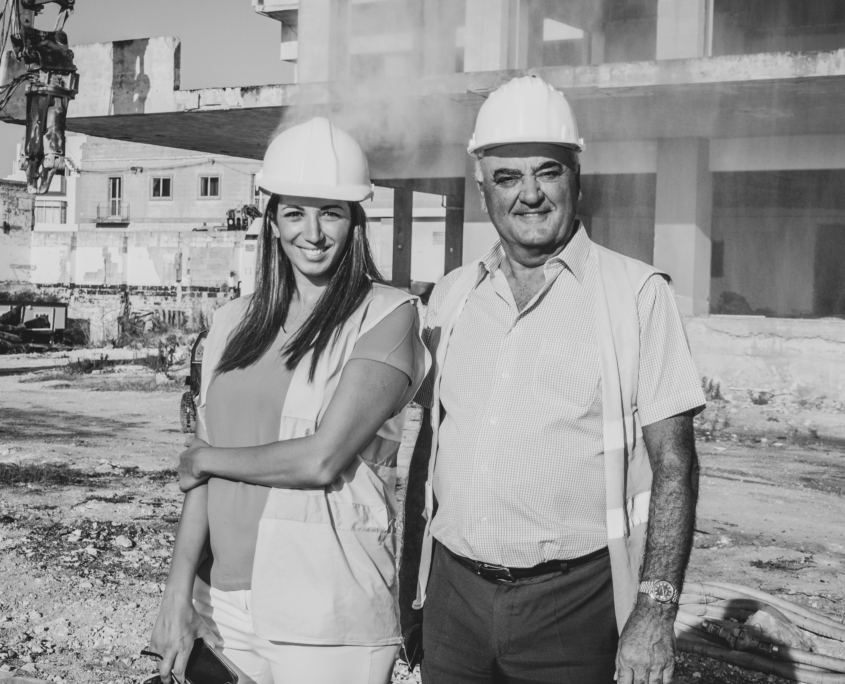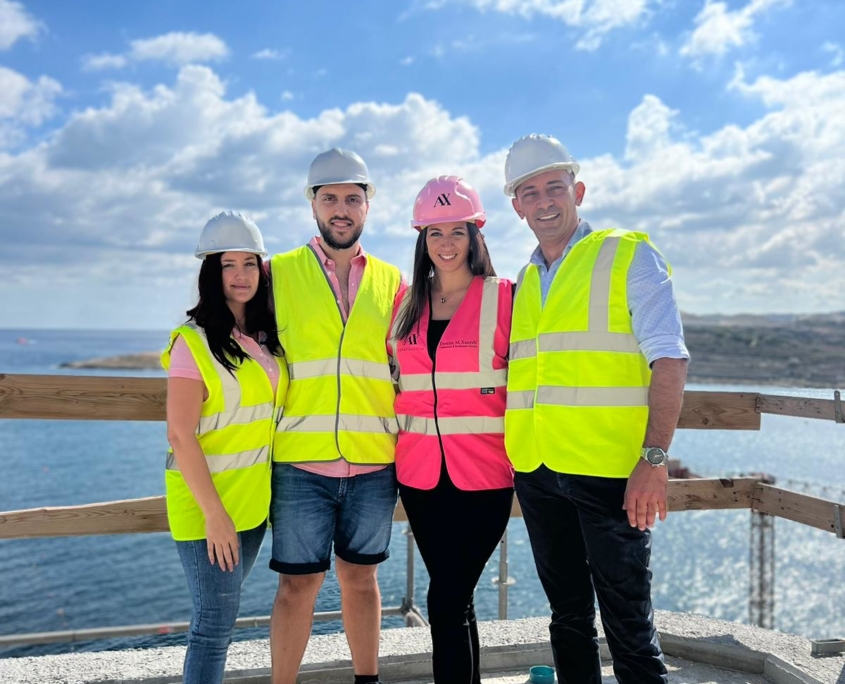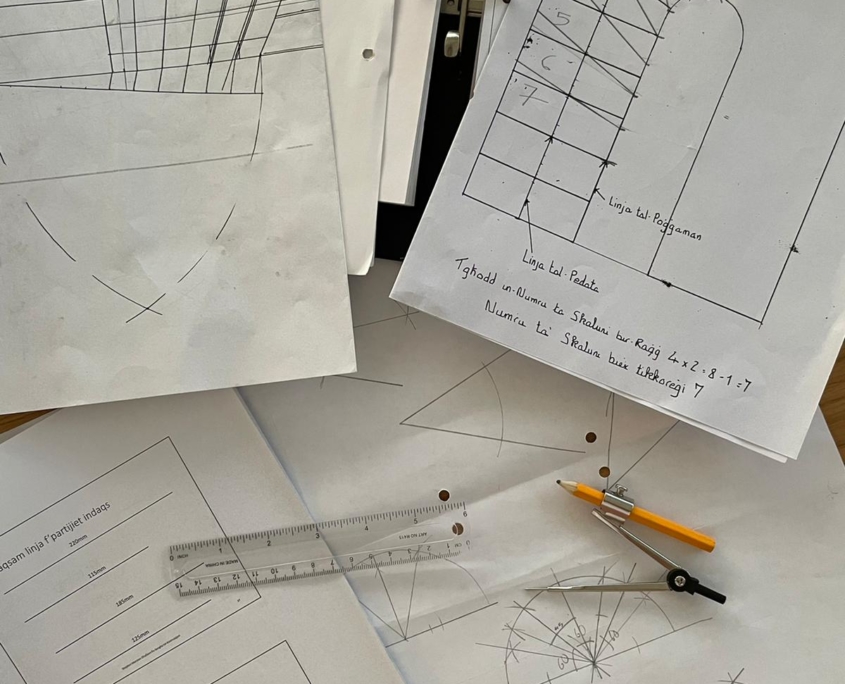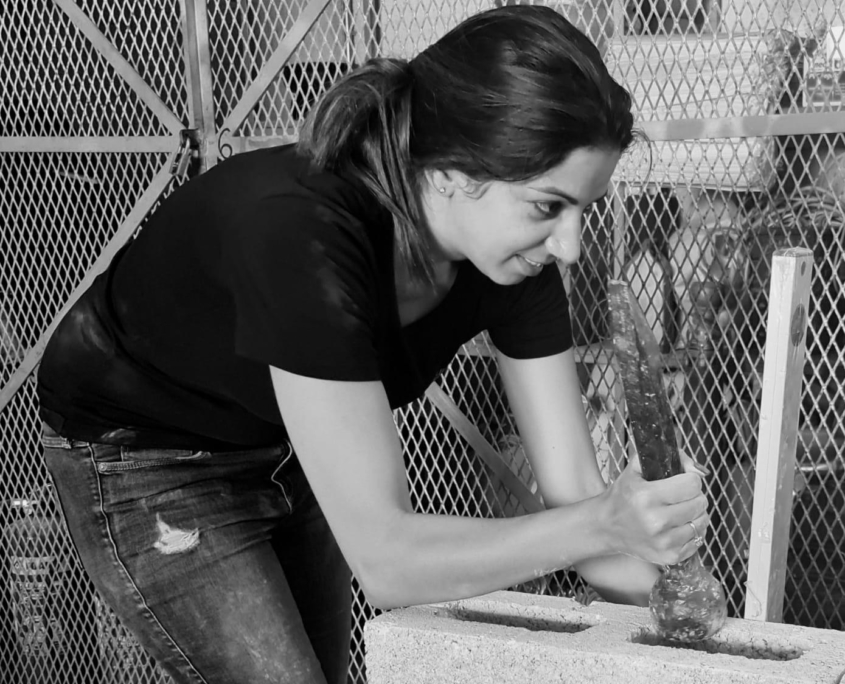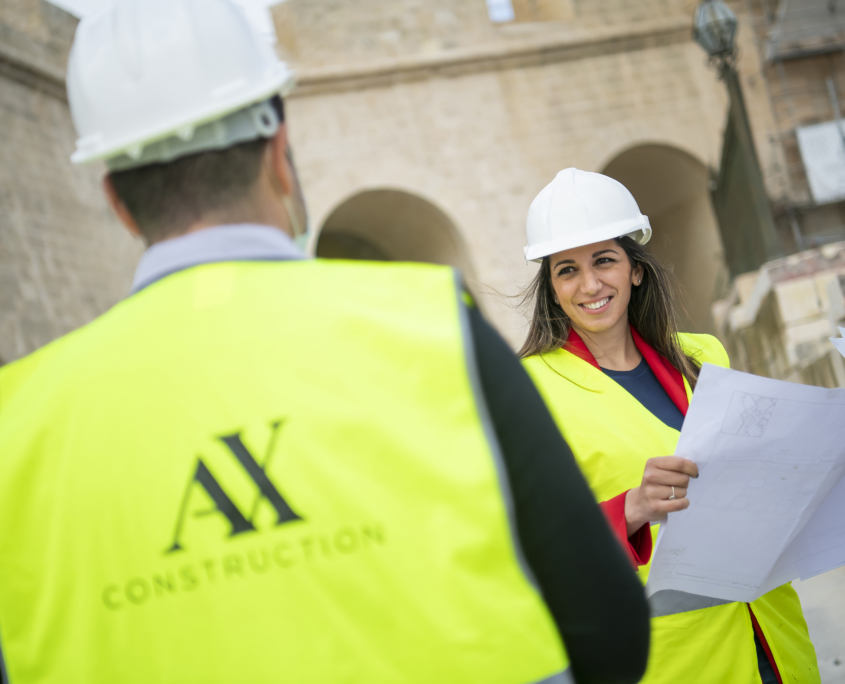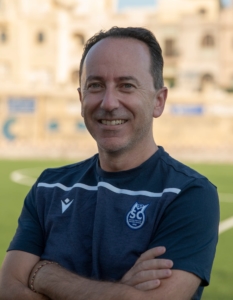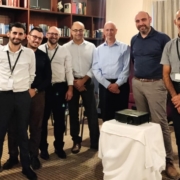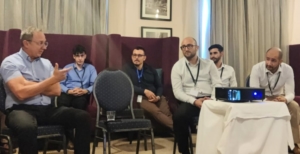Wearing The Hard Hat and Breaking The Stereotype
The construction and development sector has historically been a male-dominated industry. The notion that men are physically stronger than women largely contributed to this state of affairs, and the industry organically grew to appear more welcoming for men in all areas – from the construction site to management roles.
But one woman is challenging the stereotype. We spoke to Denise Micallef Xuereb, Construction and Development Director at AX Group, to find out more about her story and her experience on the ground.
You have always been involved in the family business and AX Group’s business streams are diverse. What drove you to steer your career specifically towards construction and development?
When AX The Palace project was underway, I was asked to supervise the works in the new guest rooms as part of the hotel operation duties, to help with the final phases of the finishing and fit-out works. The job immediately drew me in. Despite the intensity and the challenges, the adrenaline and finally seeing the project materialise was extremely satisfying. At the end I did not think twice, and I have not looked back.
When was your first time on a construction site?
I was quite young when I used to accompany my dad around sites, eager to spend time with him and enjoying the change of scene from my weekly school routine.
In the years that followed, the first real site I worked on, was at The Palace where I was responsible for the completion of new guest rooms as well as the complete fit-out of the top floor restaurant. I just had three months to make the areas habitable and ready for use. I vividly recall standing in this open space which was nothing but bricks and concrete. It was a daunting start but an excellent experience on which I kick-started my career.
How does it feel to work in a mostly male-dominated industry?
In the early days I remember it was challenging for me to stand my ground and I had to prove my worth more than others – not just for being a woman but also for being the boss’ daughter. By time I earned the respect of my colleagues and peers, through professionalism, expertise and the right attitude. And well, grind and sheer determination too.
Can you tell us more about the mason course and what compelled you to do it?
Well for those who know me, know that I am not one to shy away from any task. During one of the conferences on the industry where I was advocating for contractor licensing, a contractor asked a question to a panellist; ‘’Having no contractor license prevents me from working as a contractor but if I have a builders’ license, am I allowed to work and hire others?’’ And the answer was yes.
Having already managed AX Construction for a number of years, I found the answer absurd and realized that to manage the company I would need a builder’s license.
A month after I applied for the course. To be honest the journey was much more enriching and insightful than when I set out to do it, and today I am grateful I did it all.
There are a lot of outdated perceptions that might keep women away from the construction industry. What is your experience of this?
In recent years I have seen a higher percentage of women join the industry, as architects, engineers, surveyors, project managers, site supervisors, consultants and contractors. The sector is wide and there is so much scope for more women coming on board as both skilled workers and professionals. I believe we have a responsibility to change this perception. At AX Group, diversity and inclusion are core values and we encourage women to work towards achieving their dreams and career plans in any field.
How can entities improve the representation of women in this sector?
Education has an important role to play on two fronts. The first is to educate workers and professionals in the industry to improve the image and safety standards of the industry. That on its own will make the industry more appealing. Secondly, exposing particular roles to girls at a young age at school will make these jobs more approachable and reachable.
What are the most exciting moments of working in the field?
The adrenaline rush. And seeing a project grow from a dream, to an idea, onto a plan, and then its execution. And after blood, sweat and tears, it’s done. The most satisfying moment of all is sitting down among the end users in the space you once dreamed of and that you played a key role in; among workers in an office block, employees in a new hotel or tourists enjoying afternoon tea in a newly transformed space.
Which of your projects is most meaningful to you?
The Palace will always be my number one, much like a first love! But my true learning curve and baptism of fire remains working on the new Parliament Building. Not only was it my first holistic project but it also set new benchmarks in local construction management.
Who were your role-models throughout this journey and which valuable advice did you heed to build your career?
My father is my ultimate role model. He has taught me that everything is possible. He always supported me in all my dreams from a very young age. His most valuable advice was to treat your job as an interest, almost as a hobby and to enjoy every moment. I also collaborated with an English woman, a project manager whose composure, strength and convictions were so powerful and admirable that she impressed me greatly as a young woman starting off into the big world of construction. Her aura still inspires me today.
Will you introduce your daughters to the industry, in hope that they will follow in your footsteps?
I will always encourage my girls to follow their dreams and work hard to reach them – no matter what they are. And I will make sure they get a good education, good core values and life skills so that they are able to make their own decisions and choose what is right for them. Having said that if you ask one of my daughters today what she wants to do when older, she will probably say a builder or an architect, because she is exposed to these roles through me. But I will always remind them that they can do anything they want if they set their mind to it.

